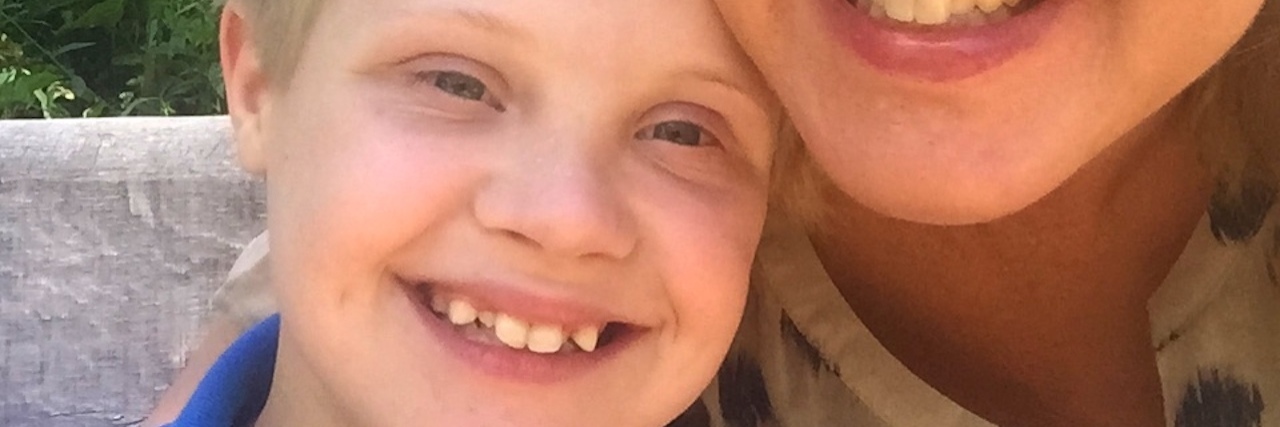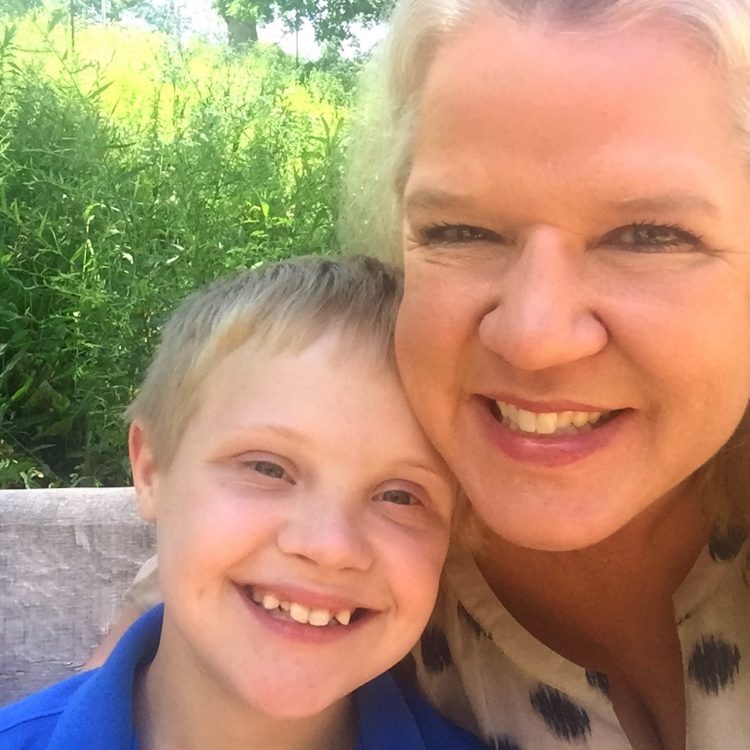I grew up in small-town Indiana and was a tall kid, so I played basketball. I was slow as molasses and my foul shot was temperamental, but I had a great game face. I wasn’t afraid to meet the eyes of opposing players, even those who were bigger and meaner-looking than me. I’d just channel my inner Ivan Drago. Bring it on.
Fast forward 30 years to my life now, as the 40-something mother of three kids. My middle child has Down syndrome, and has had IEPs since he was 3. That’s eight years of meetings and evaluations, and countless tête-à-têtes with teachers, administrators and therapists. My first experience with the process was formative. My son attended a preschool that included both children on IEPs and typical kids. He was a newly-minted 3-year-old, courtesy of a summer birthday, and only speaking in single words.
After just a few weeks, I was dropping him off when the lead teacher pulled me aside. She pointed to another boy in class and said, “Look at Christopher. See how well he speaks? He’s starting to read, too. Your son is so far behind!” I was shocked, but responded that while my son had a speech delay, he was bright and social, and we had high expectations. She then said, “I know it’s difficult, but you need to accept that your son is severely handicapped and will never be like Christopher.” It was so shocking and antiquated that I left without a word; literally speed-walked out of the room so she wouldn’t see me cry. While I hated that his new teacher underestimated him in such a profound way, the other teacher in the room was very encouraging and kind, so we kept him there (and kept a close eye on things).
Two and a half years later, we met to plan his kindergarten IEP. I walked into that meeting older and wiser, with a thicker skin and my game face intact. I met the eyes of the teacher who had written off my son so early on. In the meeting, she admitted he’d surprised her by making great progress, and said she thought he’d do very well in kindergarten. While that was gratifying, her name was already on my mental list of skeptics I planned to invite to his high school graduation. Also on that list: The speech therapist who wanted to give up on him at age 4, telling me, “He just may never learn how to talk.” And the primary school teacher who wanted to exile his desk to the far corner of the classroom and “make him earn his way back” after one silly episode in class. And the music teacher who suggested we “just keep him home” from the kindergarten musical, because she was sure he couldn’t learn the songs (he not only learned them, he unleashed a few dance moves of his own that night).
That game face is also often on when I’m talking with the parents of my son’s classmates. By now, some of the other parents know me, and know who my son is (he’s one of just a few kids with Down syndrome in our relatively small district.) But if I’m meeting someone new, invariably there’s that moment when they make the connection that my kid is the one with Down syndrome in the class. The one who occasionally misbehaves; who sometimes makes noises in the cafeteria to make his friends laugh, or hides under his desk when he’s overstimulated or frazzled from focusing on a long reading passage. Some of those parents say kind things, and tell me how much their child likes my son. Sometimes it’s clear they don’t care for him. And so it goes.
We’ve been lucky along the way to meet some fantastic friends and allies; some truly kind and patient people who see past my son’s diagnosis and work hard to nurture his many gifts and talents. We feel blessed and lucky to have them.
But we’ve also met the others, and it was those encounters that taught me how important it is to stand your ground, look the skeptics right in the eye and speak clearly, even if you do it through gritted teeth. Yes, it’s critically important you do your homework, so you know what to ask for, and what your child is legally entitled to receive. Being polite is also a smart move, since you’ll likely see the same group of people for years, through the good times and the rough patches.
But one of my most important jobs, as the mother of a kid with “stuff,” is speaking up for him when he can’t, so I can help him get what he needs to learn and grow, to nurture his passions, and find the same sort of fulfillment we all hope to have. In my experience, all of that gets easier with practice, and with a good game face.
We want to hear your story. Become a Mighty contributor here.


